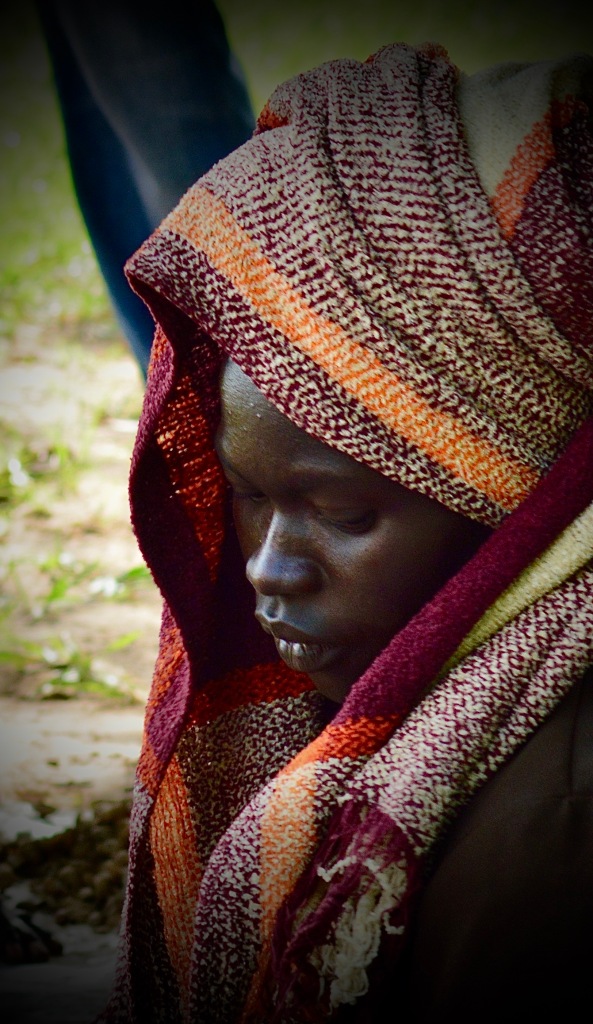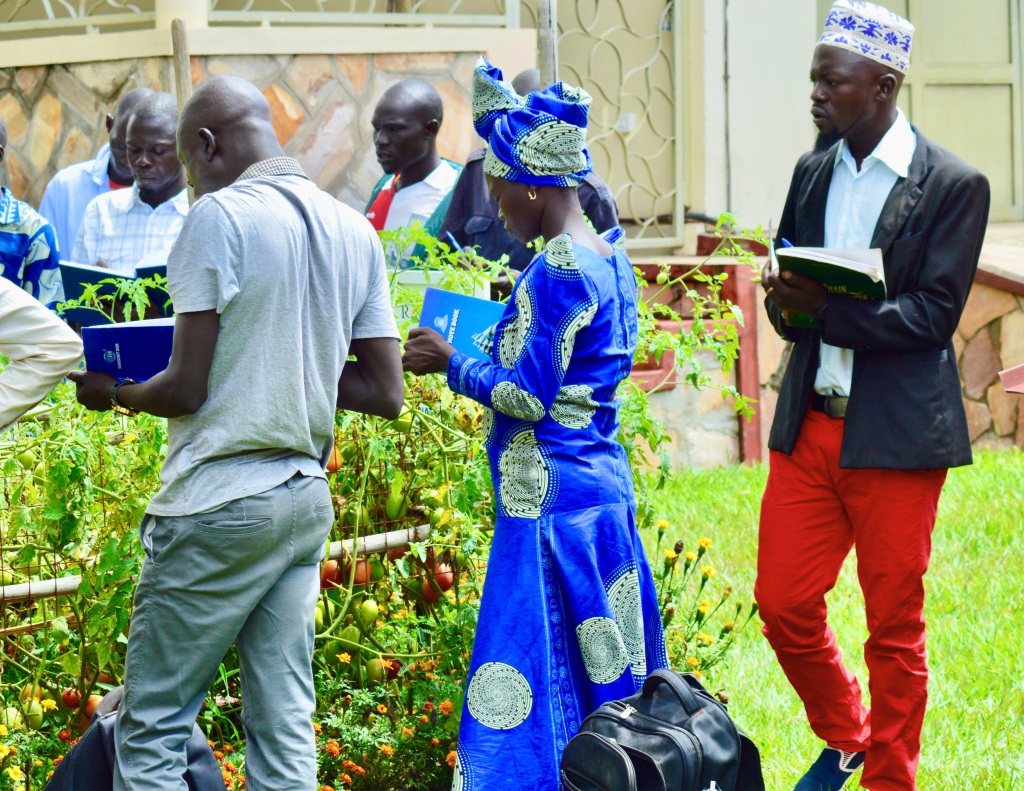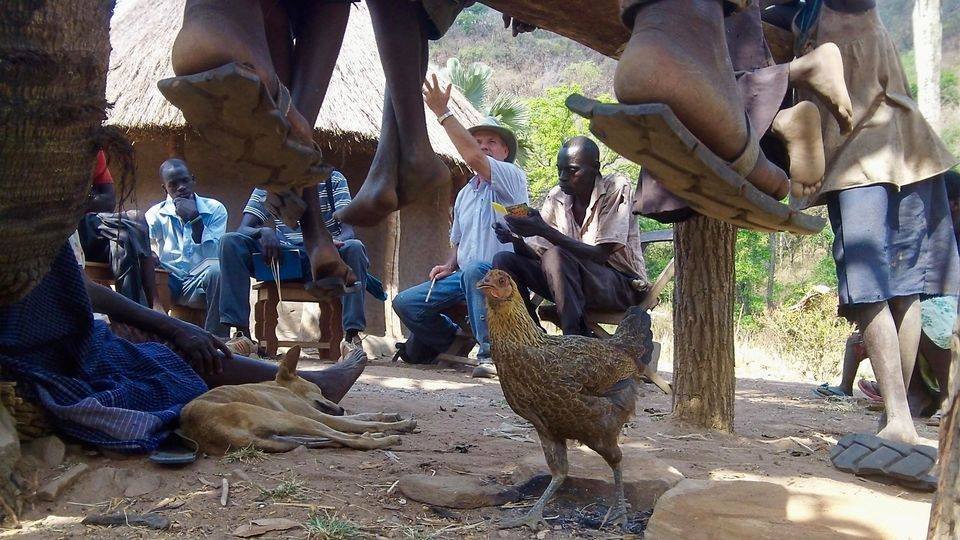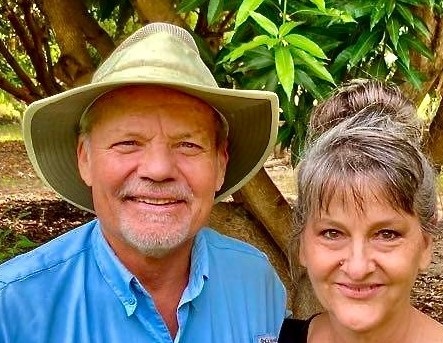By Carol Lee
This morning, Jacob and I were praying together–fervently–for the two families who are “chomping at the bit” to get over here and join the RAU team long term: The Langworthy’s and the Pryce’s. My prayer went something like this: “Lord!! Please move on behalf of the Langworthy’s and Pryce’s. Lord, you see them, ready to move, ready to uproot–for two years now they have been trying to meet their budget. Lord, You ask us in your word to pray that the Lord of the harvest would thrust forth laborers. They have answered your call! Please move in the hearts of your people to send them so that they can come over and help!”
During that prayer, a fire was lit in my heart to write down some ideas relating to the desperate need for long term (10 years or more) team members on the mission field. Through the years we have prayed earnestly–with tears, even– that the Lord would thrust forth laborers into THIS field where long-term, cross-cultural laborers are few. WE NEED THEM!
First, and simply stated, Jacob and I are aging–Jacob is 68 and I am 63 (well, 64 in March) and we need others to come alongside of us, glean from what we have learned and continue the work so that it does not end with us and so that the desired goal of true discipleship and transformation happens. We are integrally involved in the ministry itself, as well as responsible for raising the finances to keep the ministry functioning. Our realistic concern is this: if we are not around, who will stand in the gap as intercessors for this ministry–financially as well as for the on-the-ground activity happening in the various arenas–theological training for healthy churches, discipleship, Demo Farm, medical/dental outreach?
The need for discipleship and mentorship goes beyond the reach of Modular Theological training. Once Pastors have received training on any given aspect of pastoral knowledge and responsibility, who will walk alongside them to help them sort through the application of that knowledge in their given circumstances, to pray with and counsel them as they lead their flocks, to help them discern biblical culture vs. societal culture so that dangerous syncretism doesn’t derail the health and growth of the Church, or so that pastors don’t grow discouraged in the ministry? This requires manpower and presence, time and consistency. The need for this kind of care is great: RAU has several regions where direct investment has been made in the discipleship of leaders in local churches: the Metu Mountains, Obongi, Yumbe and Moyo Districts, some nearby Refugee Resettlement Camps, as well as resources to church leaders in South Sudan and the Republic of Sudan. This is beyond the scope of one or two people and requires more hands on deck for the long-haul.
Our concern for the global Church (America included) is that it would be healthy and flourishing in truth and life (See Colossians 1:28). Thankfully, Jesus is the Cornerstone AND the Builder of His Church; BUT He also gave gifts to the Body of Christ.
“Now these are the gifts Christ gave to the church: the apostles, the prophets, the evangelists, and the pastors and teachers. Their responsibility is to equip God’s people to do his work and build up the church, the body of Christ. This will continue until we all come to such unity in our faith and knowledge of God’s Son that we will be mature in the Lord, measuring up to the full and complete standard of Christ.”
(Ephesians 4: 11-13, NLT)
RAU’s mission and vision is to stand with the national church (as a para church organization), ensuring that the church here has the materials to flourish in the Lord. In the USA, we take for granted the resources, opportunities and organizations that Pastors and lay people alike have at their disposal for being strengthened in faith and equipped for every good work. Such blessings do not exist everywhere and it is the responsibility of the blessed to share what they have. The global church can and should work together and learning can and should be mutual.
Long-term benefits are acquired by long-term presence. Theological foundations are important because they are the rock upon which a spiritual building is constructed–the foundation determines the stability of the building. So, it matters very much what foundation is laid in fledgling churches. This is not something that a short term ministry can accomplish with a few visits a year. Just as the Apostle Paul spent time with new church plants, he also went back through to visit church plants along his journey to ensure they were standing firm in the faith, so it is vital for teachers to ensure that scriptural truth is accurately conveyed, preserved AND lived out. In the Epistles, we see Paul, Peter, James and John encouraging–YES–but also teaching and correcting error in doctrine and practice. A study of Church History makes it plain that, aside from Jesus’ promise to build His Church, the tenets of Christianity would not have stood unless faithful people had contended for them against much opposition and false teaching. Such contending in RAU’s context requires a theologically informed, consistent presence, sensitivity toward culture and strong relationships to nurture maturity in churches that can withstand cultural and spiritually destructive forces. This is the work of long term cross cultural missions.
Lastly and personally, we have experienced hardships related to NOT having long term team members with whom we can share burdens, mutual encouragement, work load, vision, laughter, prayer and fellowship in a cross-cultural setting. Teams can nurture longevity and endurance. We want to continue working while we have strength–and FINISH well.
As of right now, THERE ARE ENOUGH RESOURCES in the American church to fund many more long term Go-ers. Yet often, missionaries are discouraged at the growing length of time it takes to meet their budgets and give them the “green light” to go. We have two families who are eager to join us. They are ready to uproot and go– with their children. Yet, even after 2 years, they are not close to their goals and they had hoped to be here by now. They are not the only ones in this difficult position.
This is the question which lit the fire in my heart and spurred me to do some reading–and the reading produced some interesting facts/statistics.
Long-term (or career) missionaries have to compete with a host of other programs in which the churches are involved. In general, in America, an average of about 6% of a church’s budget goes to international missions whereas, for example, in some Korean churches, 50-70% of the budget may go toward sending missionaries (some of whom we have met here in Uganda). With such an imbalance in priority in our vastly more wealthy American churches it’s no wonder that missionaries struggle to find willing sending partners.
There is another contributing factor. In an article by John David Smith, the following numbers were eye-opening:
• Including domestic trips, over two million people in the U.S. go on STM (Short term Mission) trips every year.
• Estimates are that around 3.44 billion dollars (that is no typo) are spent each year on STM trips.
• From 1996 until 2005, STM participation increased 218 percent, while long-term missionary numbers increased by 7 percent.
Don Fanning, in his article about Missions trends, poses this: “The question remains: has the depletion of available funds for missions by STMs [Short Term Missions] reduced the available funds for supporting career missionaries?” Fanning quotes Robert Priest to make his point.
“What if …[the] cure for the funding problem faced by career missions — more STM… is actually a cause of the funding problem, part of the very reason it now takes so much longer for a career missionary to raise support.” In any given church the financial support base for missions is fragile. When church groups discovered that they could appeal to this spirit of missions giving for STM, with the innate sympathy of their own young people becoming a “missionary,” even if for a week, the motivation to give this discretionary mission giving easily was siphoned off to a STM project, leaving little or none for a long-term career missionary candidate (Priest, 2006, p. 438).
The emphasis is not to cancel Short Term Missions (STM). Done in partnership with Long-term Missions (with on-the-ground partners) STM teams can be very impactful as explained in the previously quoted BMA article by John David Smith (and RAU has been the grateful recipient of some wonderful STM teams):
- When done correctly, the STM trip will help foster a lifelong commitment to the mission of God. This may translate into full-time missionary service; it may not. It should create an undying commitment to making God’s name known no matter what one’s specific role or location may be. If this is the motive for the STM trip, it will set the stage for missionary participation from that point forward.
- STM help very ethnocentric people become more others-oriented. Ethnocentrism is the belief that one’s home culture is superior to all other cultures. A short visit to the mission field can certainly help open our eyes to the fact that it really isn’t all about us—and that is a good thing.
- An STM trip can go a long way in helping to equip people for future ministry. Once again this depends on the motive, purpose, and outcome of the trips taken.
- Many long-term missionaries give testimony to the fact that a STM team was instrumental in God leading them to their place of service on the mission field. Exposure to the work of missions can and should be a life-changer.
I would also add that, when done well, STM teams can be a great support and encouragement as an underscore to what the missionaries are doing on the ground. Jacob and I have personally experienced this many times. Teams bring valuable resources along with them, not just materially but spiritually. Their presence on the field declares to the sending church and to the missionary and to the world: “What you are doing is worthy of our support and participation and we want to encourage you in it by using our gifts to help!!“
However, concerning the trend in STM, John David Smith writes: “”In 2010, for the first time, American churches spent more money on STM than they spent supporting full-time missionaries (and it continues today). What a tragedy!” In correction of this trend he recommends a different paradigm for missionary support: an 80/20 ratio—80% of the missions budget for long-term missionaries and no more than 20% for short-term missions activity.
Ultimately, the Church’s mandate of the Great Commission is about making disciples not just converts. This, by definition, is a long term goal which cannot be accomplished by short term ministry (though such a ministry can effectively support the goal). Both Jacob and I would be grieved and disappointed if the fruit of our labor did not match our Savior’s call for transformed disciples. One article (from Missio Nexus) reports, “Some studies suggest that missionaries typically reach their season of greatest fruitfulness when they’ve been on the field for seven years, but the typical missionary serves a shorter time than that.”
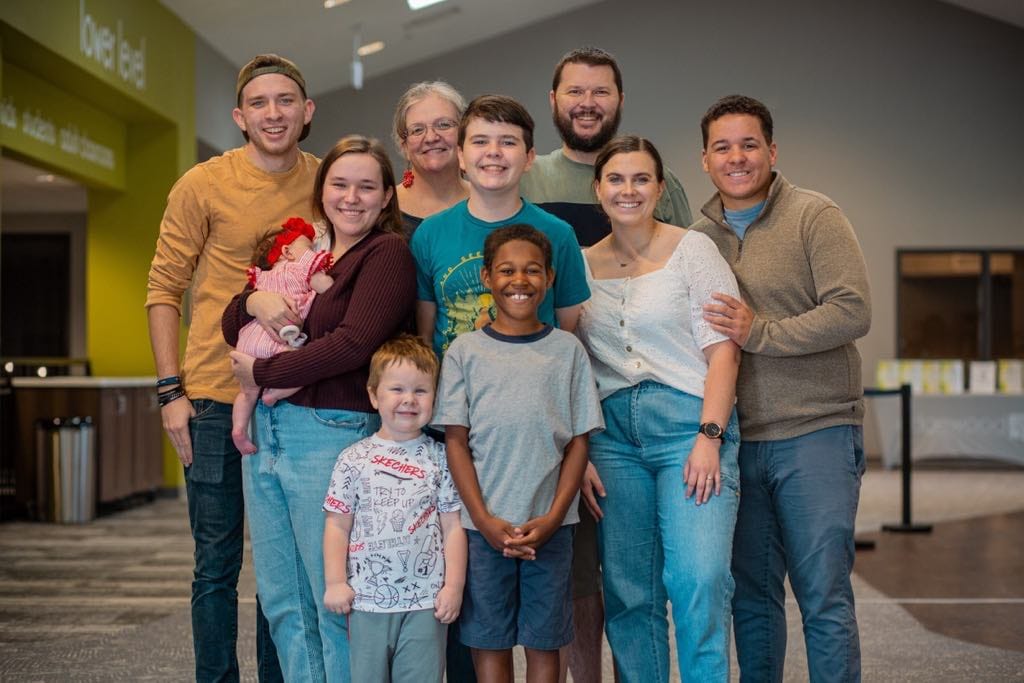
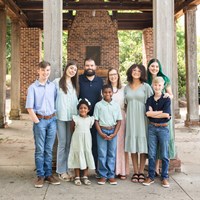
To support the Langworthy’s (Left) and Pryce’s (Right) please follow the links in blue!!
In another article, J. Taliaferro writes,
“Effectiveness in ministry is always linked to time. Most gospel endeavors do not experience immediate success. As ministers of the Gospel imbed themselves incarnation-ally into a culture to live out and proclaim the gospel, change gradually happens. Eyes are opened, and lives are changed. But to go from small-scale change to large-scale multiplying movement usually takes ten years or more. Unfortunately, most missionaries don’t make it to the five-year mark, much less ten, twenty, or thirty. If we want to see a renewed era of gospel expansion, we must first figure out how to send missionaries well and keep them there.”
I began this article with a sincere and urgent prayer to the Lord; but just as passionately I would also like to express our heartfelt desire to all you who read our newsletters and stand with us in many ways. This is not a plea for more money, but rather a request for re-prioritizing something of ultimate importance. Jacob and I have experienced the faithfulness of God in providing for this ministry through you all. We ask you, as church members and church leaders, to consider more prayerfully this priority of sending long term missionaries in greater number and with greater urgency. We don’t understand why, in God’s providence, He has not answered our prayer–yet! We see the answer “waiting in the wings” but its fulfillment in our story seems too long in coming. We pray that the Holy Spirit will use these words to stir His people’s hearts, minds and wills. God is sovereign, YES, but God also uses human agents to achieve His ends. Can the Lord answer our many fervent prayers for help? Can He use the offering of this article to do that stirring?
We love you and pray for you, our beloved family and friends and supporters!
With love and gratefulness,
Jacob and Carol Lee
www.ReachingAfricasUnreached.org
What we do now in the Lord and for Him will echo throughout eternity for His praise and honor….all else is dust in the wind!
“It is our conviction that the Gospel is the power of God for salvation” (Romans 1:16) and we have been entrusted to proclaim it passionately and rightly. Our dependence is upon the Holy Spirit for the power to preach, teach, live and endure all things for the sake of the elect. (1 Timothy 2:10). As Christians, we are called to lay down our lives so that the Gospel will be preached to all. As ones who are confident in God’s sovereignty and passionate for His glory we seek to reach the many that have never heard of the Savior and His work of reconciliation. We understand that this work cannot be accomplished in our own strength but only through the supernatural power of the Holy Spirit. The means He uses in His people are cross-centered living, sacrificial and loving service, Bible-soaked preaching/teaching, fervent intercessory prayer, and Christ-likeness.” (From Reaching Africa’s Unreached Mission & Vision Statement)
Donations are tax deductible–> https://www.paypal.com/donate/?cmd=_s-xclick&hosted_button_id=WAR99DL4JFWXQ&ssrt=1702909444355
Checks also may be written out to “RAU” and sent to our secretary Beth and she will deposit them into RAU’s account : Lifegate-RAU, 395 Lifegate Ln., Seguin, TX. 78155
Mission & Vision Statements: https://reachingafricasunreached.org/about/
Mercy Ministries: https://reachingafricasunreached.org/agriculture-project/
Blog Posts: www.ReachingAfricasUnreached.org
Donation Page : https://reachingafricasunreached.org/donations/
RAU’s YouTube Videos: https://www.youtube.com/channel/UCRmHafoBSemE7jS8kEHCG6Q/videos
RAU is in partnership with ABWE: www.ABWE.org
